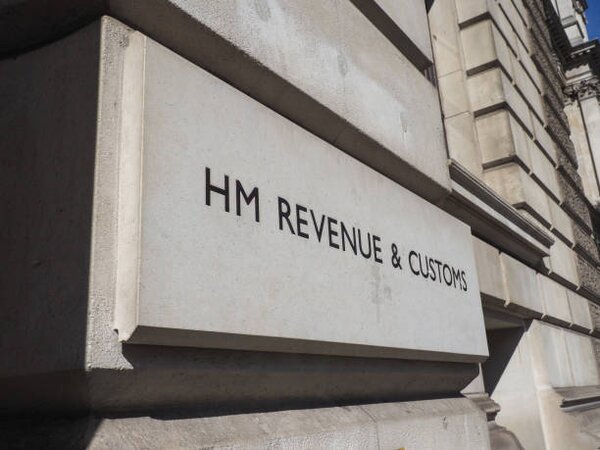Let’s Break Down Corporation Tax
If you're running a limited company in the UK, corporation tax is something you can't afford to ignore. This tax is charged on your company’s annual profits, and while the current rate is 25% for most companies, it can vary depending on how much you earn.Your company must file a tax return with HMRC and pay the bill within nine months and one day after the end of your accounting period.
Understanding your tax liabilities and deadlines is crucial—miss them, and you’ll face penalties and interest charges.
In this guide, we’ll show you what you need to know to stay on top of corporation tax, without the confusion.
What exactly is corporation tax and who needs to pay it?
Corporation tax is the tax UK companies pay on their profits. If you run a limited company, you’re responsible for calculating, reporting, and paying this tax to HMRC. Unlike personal taxes, HMRC won’t send you a bill.
It’s entirely up to you to work out how much you owe and pay it on time. Even if your company isn’t making much profit, you still need to file a return as part of your legal responsibilities as a company director.
Sole traders and partnerships, on the other hand, must report their income through a self-assessment tax return, unlike limited companies which pay corporation tax.

When is corporation tax due for payment?
The standard deadline for paying corporation tax is 9 months and 1 day after your accounting period ends. Timely corporation tax payment is crucial to avoid penalties and interest charges. For example, if your accounting period ends on 31 March 2024, you need to pay by 1 January 2025.
Larger companies with profits over £1.5 million have different rules. They pay in quarterly instalments rather than one annual payment. New companies should determine their accounting period right away to understand exactly when tax will be due.
Remember that HMRC doesn’t send reminders about corporation tax. Tracking these deadlines is completely your responsibility as a business owner.
How do your company's accounting dates affect payment deadlines?
Your accounting period typically matches your financial year but can’t exceed 12 months. The end of your accounting period is significant as it determines your tax payment deadlines. Most companies align this with the tax year for simplicity. If you have a shorter accounting period, perhaps because you’re a new company, the 9-month-and-1-day rule still applies.
Companies with accounting periods spanning different tax years might face varying tax rates across the period. This can make calculations a bit trickier. Changed your year-end recently? Your corporation tax deadline will shift accordingly.
You can check your specific deadlines through your HMRC business tax account online. It’s worth checking this regularly to avoid any unexpected surprises.

When must you file your corporation tax return?
Your corporation tax return (Form CT600) is a crucial part of your tax returns and must be filed within 12 months after your accounting period ends to avoid penalties. This means you have an extra 3 months after paying your tax to submit the paperwork, which many companies find confusing at first.
Your return must be filed electronically through HMRC’s online services or compatible software. Paper returns are no longer accepted except in rare circumstances. Even if your company made a loss or had no income, you still need to file a return by the deadline.
Missing the filing deadline triggers automatic penalties, starting at £100 and increasing substantially for longer delays. Nil returns are still required, so don’t assume you can skip filing if you had no profit.
Companies House Filings
All limited companies in the UK must file their annual accounts with Companies House within nine months of the end of their accounting period. The company’s financial year-end is usually the same as the end of their accounting period.
Companies House filings include the company’s annual accounts, which must be prepared in accordance with UK accounting standards. The company’s accounts must include a profit and loss account, a balance sheet, and notes to the accounts.
Companies can file their accounts online or by post, but it’s recommended to use an accountant to ensure accuracy and compliance with UK accounting regulations.

What payment methods can you use for corporation tax?
Online bank transfers are the most popular and efficient way to pay. They're quick and provide good payment tracking. If you're using BACS, allow 3 working days for processing to avoid being technically late.
Need to pay at the last minute? CHAPS payments are processed on the same day but usually involve a bank fee. Direct Debits are convenient but require setup at least 5 working days before the payment date.
When making any payment, always use your correct corporation tax reference number. This ensures your payment is properly allocated to your account and prevents potential confusion with HMRC.
What happens if you miss your corporation tax deadline?
Late payment immediately triggers interest charges from HMRC. These accrue daily until you pay in full, with the current interest rate for late payments at 7.75% (as of 2023), which adds up quickly on larger tax bills.
Missing your filing deadline results in separate penalties starting at £100, even if you've paid your tax on time. If your return is more than 3 months late, HMRC may estimate your tax bill and charge penalties based on that amount.
Companies struggling with cash flow can contact HMRC to arrange a Time to Pay agreement before the deadline. This can help avoid some penalties while giving you breathing space to manage your finances.

Can you reduce your corporation tax bill legally?
Yes! Make sure you’re claiming all legitimate business expenses. Many companies miss deductions they’re entitled to. Research and Development tax credits can offer significant relief if your company develops new products, services, or processes.
Marginal relief can benefit medium-sized businesses earning between £50,000 and £250,000 by providing a gradual increase in tax liability, preventing a sharp jump from the lower tax bracket to the higher one.
Capital allowances let you claim tax relief on business assets, potentially reducing your taxable profits. Consider the timing of major purchases or investments, as sometimes delaying or bringing forward expenses can help manage your tax position.
Pension contributions for directors and staff are tax-deductible for the company, offering potential tax savings. I’ve personally seen clients save thousands by properly timing their capital expenditures just before their accounting year-end.
Final Thoughts on Managing Your Corporation Tax
A company's accounting period is crucial for managing corporation tax, as it determines when various tax obligations, such as the Corporation Tax Return and filing accounts with Companies House, are due.
Regular reviews and accurate record-keeping throughout the accounting period help avoid surprises. Keeping detailed records throughout the year makes tax time much simpler and less stressful.
Stay updated on tax rule changes, as HMRC frequently updates regulations that could affect your liability. And remember, paying corporation tax is a sign your business is generating profit – which is ultimately a good thing.











